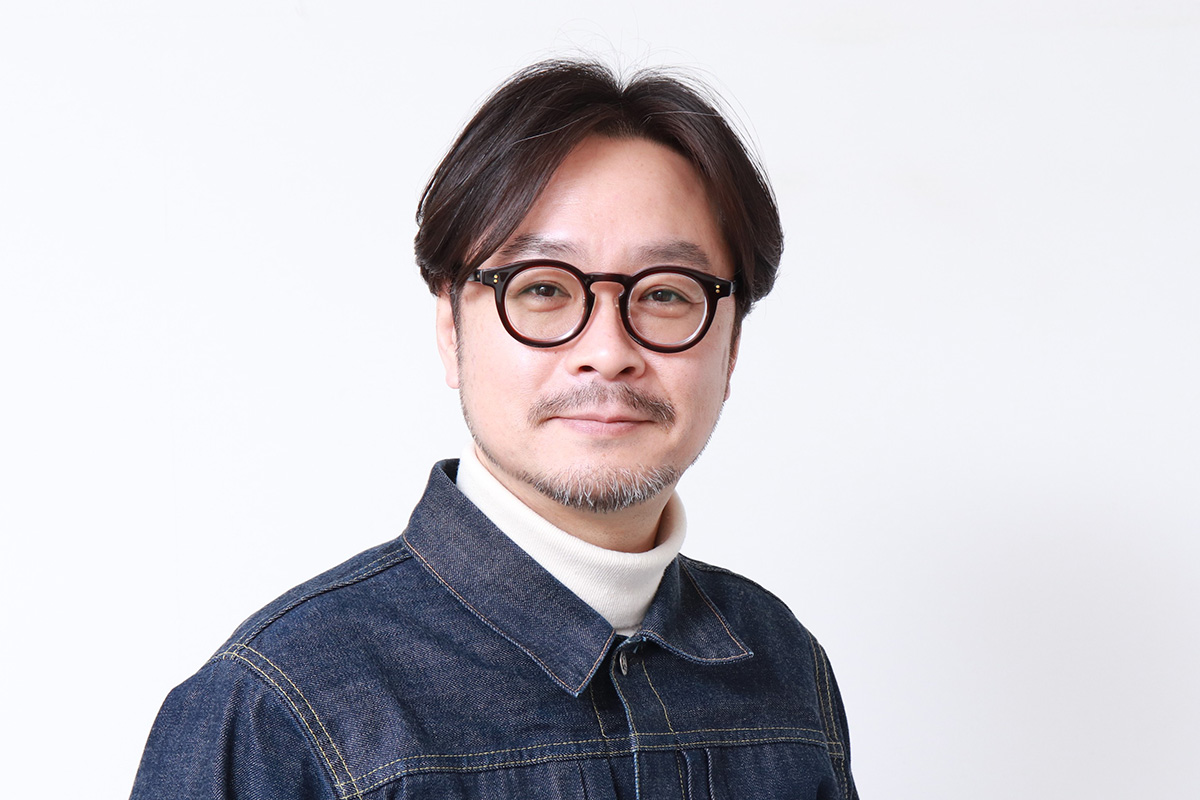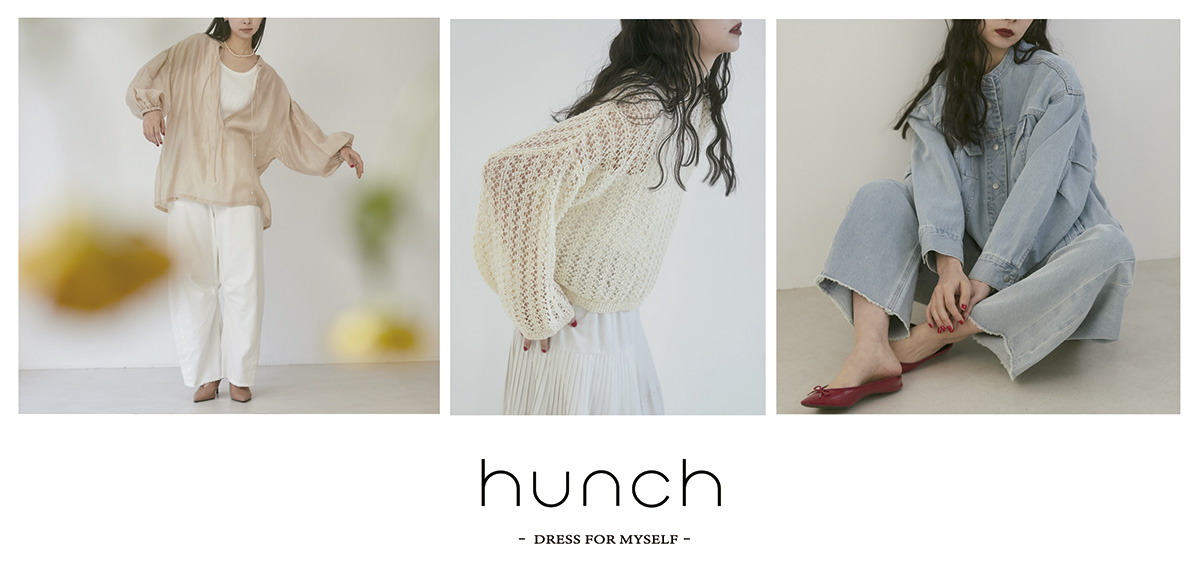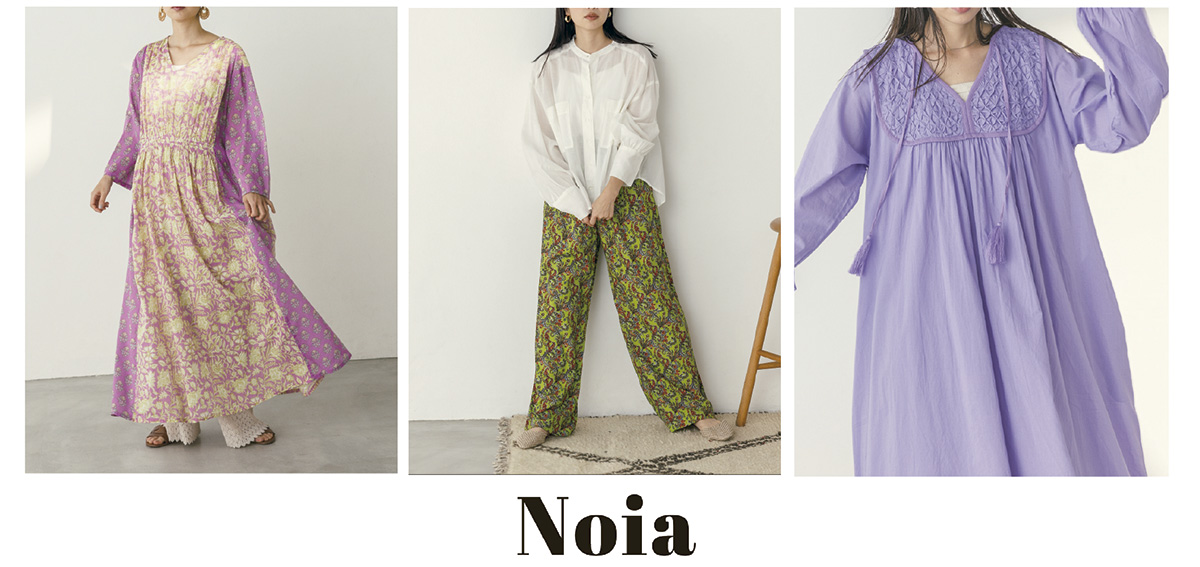Delve into the unique advantages of Japanese textile manufacturers in the global market. Amidst challenges posed by a declining population and changing industry trends, Tomochika outlines Wagen's strategies for sustainability, ethical practices, and international expansion.

Over the last 25-30 years Japan has seen the rise of regional manufacturers from countries such as China, Taiwan, and Korea, who have replicated Japanese manufacturing processes but done so at a cheaper labor cost, thus pushing Japan out of certain mass markets, however, we do still see some Japanese companies in the clothing industry, in particular, maintain high global market shares with leading companies such as Uniqlo and Muji for example. To this end, what do you believe to be the key advantages of Japanese textile manufacturers right now?
I feel that in Japan's geographical environment, Japanese people have a culture that allows them to think deeply about one thing. If Japan were a land-locked country, these ideas would flow to neighboring countries, but since Japan is an island nation surrounded by the sea, there is no way for them to leave. The Japanese people then dig deep into them and make them their own. I believe that such old ways of thinking and ingenuity are still present in the Japanese people today.
Japanese people are diligent, and I believe that their sincerity is reflected in their products. I think this is the advantage of Japanese textile makers, who can transmit value-added products and quality to the world through the filter of Japan.
One of the biggest trends happening in Japan right now is, of course, the changing demographic situation. Japan is the oldest society in the world with a rapidly declining population. Experts are predicting that the population will drop to under 100 million by 2050, with one in three people over the age of 65. This is causing several issues including a labor crisis and a shrinking domestic market. Having said this, what is your firm doing to ensure business continuity and to what extent do you believe you need to look overseas to ensure long-term success?
There is still a lot of work we can do in the domestic market, and our flagship brand called Hunch has been introduced to the Japanese market. We have some loyal customers here, but not to an extreme level, and we feel there is still a gap to cover.
Speaking about overseas, this is something else we are thinking about at the same time. Two years ago we opened our website for Hunch as a brand, and we’ve received good feedback from that launch. This was taking Hunch and applying it through a B2B approach, and gradually we started receiving some requests from Taiwan and Hong Kong from counterparts who were introducing our products to their countries. As you can see, to some extent we already have some element of exposure overseas and we see the potential for further expansion. I think that expansion will ultimately come down to marketing and increasing brand awareness, and I think Hunch as a brand works well with the social media marketing that is ultra-prevalent in 2023. If we can increase brand recognition both domestically and overseas then we can increase sales channels, putting our company in a much better position for the future.
The clothing industry has one of the longest supply chains, causing increased amounts of CO2 emissions, and if you couple that with the perception that the clothing industry is one of the most polluting industries in the world there is a real optics issue. Industry trends such as fast fashion have led the clothing industry to dump 10,000 pieces of clothing in landfills every 5 minutes. What steps are your company taking to be more sustainable in your operations?
This industry does create this kind of perception to the outside world, but as the Adventure Group of several companies, we base our principles on the expected audience, analyzing the market tendencies and seeing how many orders we can expect. In this way, we don’t overproduce products and we avoid overstocking. Our company has steered away from mass production and instead produces based on market estimations and expectancy.
Of course, none of us have a crystal ball that can perfectly predict the future, thus inevitably we do have stock left, but by investing half of our employees in production planning and creating products that can be used at shops, we will avoid extra stock with creating an environment where retailers can order products when they need them. We make significant efforts are being made group-wide to avoid mass production and avoid overproducing stock that cannot be sold, thus leading to us being a more environmentally friendly company.
We have a wide range of sales channels throughout the nation with major hubs in Sapporo, Tokyo, Osaka, and Fukuoka, and this has allowed us to create good relationships with local retailers and gain firsthand information from the market itself. This information is vital in ensuring that we don’t overproduce products.
The company also takes pride in our ethical sourcing of materials, water usage reductions, energy consumption, minimal waste efforts, and recycling or upcycling initiatives.
The Adventure Group cooperates with the Japan Association for the World Food Programme (WFP) Red Cup Campaign and conducts several charity activities in Japan and abroad. In particular, in India, where we have received production cooperation, we donated ambulances and built the Municipal Girls Higher Secondary School to contribute to the local revitalization and education. These are all activities that we conduct to contribute to a better society for the future.
The Japanese clothing industry is in an interesting position right now with the growth of inbound tourism and tax-free benefits that tourists can receive as well as the historically low JPY. This has made Japan a very attractive destination for tourists to come to from all around the globe, and there lies an opportunity to promote Japanese clothing. Savvy tourists often take advantage of the situation to bring back high-quality clothes from Japan. What opportunities does this situation create for your company?
You may assume that retailers in Japan are using this as a business chance to bounce off of the rising number of inbound people coming to Japan, but we believe it is the opposite. We don’t see any effects from this situation, especially when you talk about our brands and our apparel.
Inbound people are coming for tourist reasons, and their priorities lie in seeing spectacular views of Japan or exploring the culture that Japan can offer. There isn’t a huge incentive for them to buy Japanese apparel. Of course, those that are big fans of Japanese design might take advantage of this situation but we don’t see this as an overall tendency. Since it isn’t a great business chance for us we aren’t targeting this type of audience.
Since the advent of COVID-19, many industries have greatly suffered, and physical retail stores in particular have struggled with the changing lifestyles and consumption habits of people. At the same time, online sales jumped by 13%, making Japan the fourth-largest e-commerce market in the world. We know that you sell your products via your website but you also use websites such as Rakuten. How has your business adapted to take advantage of this growth in e-commerce?
90% of our sales are wholesale and our whole group has a focus on our B2B approach. Hunch is the only example of where we sell online through a B2C approach. Hunch as a brand originated from Wagen and accounts for 10% of sales in B2C.
E-commerce is something that we are looking to continue and excel at moving forward. Instagram is the only channel where we promote, and through the app and our profile, we promote Hunch as a brand. This is working out well but there is always room for better numbers and improvements. The hope is to create a loop where our work on Instagram with Hunch will lead back to B2B wholesales, creating a synergistic effect.
Could you tell us more about the concept of the Hunch brand and what message are you trying to convey to customers who are interested in buying your products?
Hunch is based on the idea of offering stress-free casual wear, something we refer to as “French Chic Casual”. We are trying to exhibit our best features to bring excitement to a woman’s lifestyle. In Japan in particular the working style of women is changing and society has a new view towards women. Wagen is trying to minimize the stress of work through our clothes to allow our customers to do their best at the workplace without having to worry about their clothes. Hunch helps excel in the best features of women while creating better efficiency in the workplace.
We believe Hunch creates a striking balance between the image, the stylishness, and comfortability to achieve clothing that allows women to be at their best in a professional environment, essentially casual wear with a glimpse of chic.
Women don’t limit their lives to an office, so we consider the brand to be the ultimate solution to elegance both during and outside of work. The key is to remember that we want customers to look elegant wearing Hunch clothing. This is the message we want to deliver through Hunch.

Various items of Hunch clothing
Japan is known for its high-quality products and materials in the clothing industry, but resources are scarce as you mentioned earlier. It is very challenging to produce 100% made-in-Japan clothing products. How do you procure your main materials? How do you ensure the same level of quality at your overseas sites as you do in Japan?
We select the fabric that will be the essentials of the product and have the fabric manufactured locally from scratch to avoid quality problems.
In addition, within the company, the planning department and the production control department bring their respective knowledge to control the quality of each product at the sample-making stage so that the quality is equivalent to that of those made in Japan.
We aim to further improve quality by making full use of the relationship of trust and experience we have cultivated with overseas suppliers over the past half-century.
We know that through your Adventure Group, you have a presence not only in Japan but also in China and India. You’ve also alluded to operations and sales within Taiwan and Hong Kong. Where is next in terms of international expansion, and what strategies will you employ to continue increasing your global presence?
One key strategy we need to outline is localizing our production further in ASEAN countries. We have locations in China and India, but we are looking forward to Vietnam and Bangladesh as possible next destinations. There we are looking for new partners that could help us expand our production facilities beyond our current capacity.
The next key point comes from a sales point of view. Apparel is difficult when transitioning from the Japanese market to international markets since our products are designed with Japanese people in mind, thus the sizes and dimensions do not correlate well with Western people in particular. It is hard to assume that apparel items will apply to any other country besides Japan. This fact itself is a problematic point so we need to look for a way out of this issue. It might require us to fix our production to fit the expectations of people besides the Japanese, which in turn would allow us to increase our sales. Currently, however, we don’t see this being a strategy right now for the Japanese and Asian markets.
In our research, we saw that you also have the Collect by Hunch as well as the ‘Lil Nina’ brands that are sold through outlets. Could you tell us more about these two brands and the concepts behind them?
There might be some confusion and we are actually in the process of combining all of these brands under the Hunch umbrella.
What is your favorite product and what is next for Hunch? Are there any new designs that you would like to showcase for us today?
We have a sister brand to Hunch that we call Noia. Honestly, the Japanese market is flooded with so many brands and so many local apparel players. It is very hard to segregate and find your path. This is why we like simple, and it is another reason why we’ve tried to combine all our brands under one name. We are excited about the opportunities Noia could create and we do understand that with any brand, time is required to achieve brand recognition. Building trust and loyalty might take 20 or 30 years but in the long run, it is going to be much longer lasting. We are hoping this will be the case with Noia, becoming a key complement to Hunch.

Noia items of clothing
Imagine that we come back in four years and have this interview all over again. What goals or dreams do you hope to achieve by the time we come back for that new interview?
The Adventure Group is now looking toward our 60th anniversary and Wagen as a sub–company is at 51 years and counting. I would like to see in the future Wagen creating more brands and fostering brand recognition for these brands. That is my goal and dream for this company in the future.
For more details, explore their website at https://wagen.adventure-gr.com/company/
0 COMMENTS